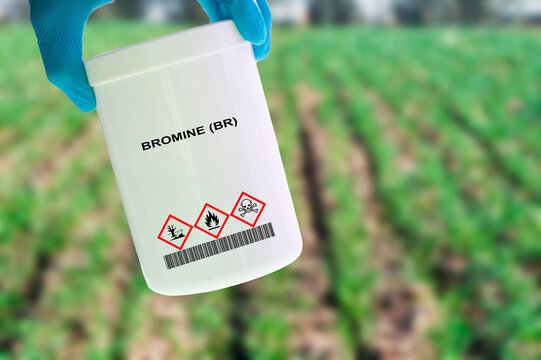Sunday, 22 February 2026

The agricultural fumigant market is experiencing a marked increase in valuation, with a growth from $1,190.0 million in 2019 to $1667.0 million in 2024. This growth is expected to continue, with an estimated valuation of $2,830 million for 2034 and a projected CAGR of 5.4 per cent through 2034. This growth can be attributed to various factors, including advancements in farming techniques and the need for effective and economical pest management techniques to minimize post-harvest losses
The agricultural fumigant industry plays a pivotal role in ensuring global food security by protecting crops and stored food products from pests, diseases, and other contaminants. In 2019, the market was valued at $1,190 million, surging to an estimated $1,667 million by 2024. This impressive trajectory is anticipated to reach $2,830 million by 2034, growing at a steady CAGR of 5.4 per cent.
Growing populations and climate change have heightened the demand for efficient agricultural practices, including pest management solutions. Agricultural fumigants are pivotal in maintaining yield quality and minimizing crop losses, particularly in regions facing food crises or adopting sustainable agricultural techniques. One of the key drivers of growth in the agricultural fumigant market is the increasing salinity of the soil, which has forced farmers in countries like India, the United States, and China to adopt organic agrarian fumigants. Suppliers store produce, and with advancements in storage techniques, fumigant demand has also accelerated.
It is important to note that fumigants can cause problems like phytotoxicity according to crop type, seasonal conditions, and more. Research shows that fumigants can be used only by professional fumigators due to their high toxicity, which can promote lower-risk fumigants as land safety is prime for farmers. Despite this, the market for agricultural fumigants remains robust, with solid forms such as phosphine being particularly popular due to their higher efficiency and lower cost compared to other fumigants. Solid forms are also easier to handle and store, making them more convenient for suppliers to stock and sell. The agricultural sector remains the backbone of many economies. Fumigants play a significant role in enhancing productivity by providing efficient pest control solutions. Developing countries with agrarian-based economies are increasingly adopting fumigants to improve yield and safeguard stored products.
Phosphine-based fumigants are increasingly preferred due to their effectiveness, ease of application, and reduced environmental impact. These fumigants are especially favored in regions where sustainable farming is prioritized. Solid fumigants are gaining traction owing to their long shelf life, safe handling properties, and effectiveness in controlled release applications. This trend is particularly notable in countries investing heavily in advanced agricultural technologies.